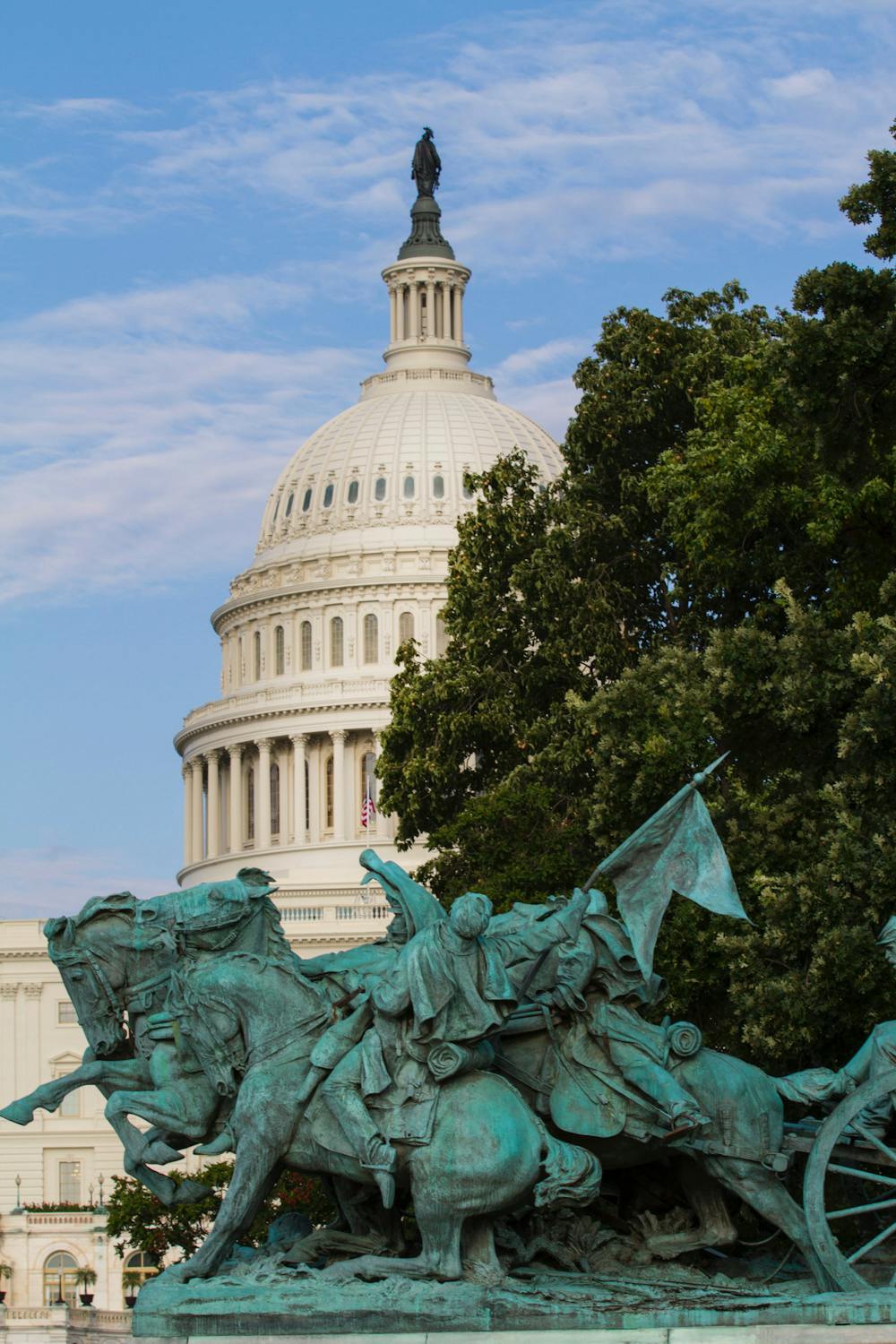By Chase Eisenberg
Staff Writer
Democracy, by nature, has been and always will be fragile, seemingly ready to break at any moment. The same foundation of democracy that results in its fragility is what makes this system the fairest and most just form of government. What I’m talking about is freedom. The freedom to be who you want to be, to achieve the things you set your mind to, and to have control over your own life and the legislation that affects your life.
The opposite of democracy is authoritarianism, where individuals have all rights and freedoms stripped from them for the good of the government leaders. Unfortunately, we have seen this too often in the past, most recently with Vladimir Putin and the Chinese Communist Party, yet the trend extends back to some of the oldest civilizations in human history.
Democracy is centered around the idea that all citizens are equal and have a right to be heard as such. In other words, the burning core of democracy is power to the people. As beautiful as this idea is, it unfortunately allows some individuals to abuse their power, selfishly gathering more and more of it to achieve their own agenda.
For these reasons, democracy both within this country and around the globe seems to be breaking down at an alarming rate. This is not the first time that this has happened. The 1950s and 1980s saw the decline of many democracies during the Cold War. Through this difficult time, America’s democracy stood tall, unwavering although the ground beneath it felt as if it were crumbling.
Yet again, the future of democracy appears to be at stake. According to Freedom House, 83 countries in the year 2005 were strengthening their democracies by increasing the power and the rights of individual citizens, while 52 were weakening their democracies by allowing for abuses of power and stripping away human rights and freedoms. As of 2021, however, only 25 countries were improving, while 60 were declining. The numbers are certainly pointing to a breakdown.
Over the past ten years in the U.S, political waters have heated up from warm to boiling. A contributor to this is the increasing polarization of the two main American political parties. The number of individuals with consistent liberal or conservative views has doubled in the past two decades, picking up speed with the most recent elections. In 1994, only 8% of Democrats identified themselves as consistent liberals, a percentage that is now up to 38%. The percentages for Republicans who identified themselves as consistent conservatives are 23% and 33% respectively.
This division makes way for a dangerous route to authoritarianism. Over the years, I have seen disagreements spring up between citizens solely based on diverging political views. I have seen once-strong relationships crumble over the topic of politics. These disputes are increasingly morphing into physical violence.
In 2017, a crazed man with an agenda against the Republican party shot and seriously injured Steve Scalise, the Republican representative for the state of Louisiana. Scalise was at a practice for the congressional baseball game when the attack occurred. An unstable man wielding a gun harassed Pramila Jayapal, a Democrat representative in Washington, outside her home; an assailant shattered the window of Susan Collins’s house, a Republican representative of Maine.
The most recent attack, which has gained much more attention, targeted Paul Pelosi, Speaker of the House Nancy Pelosi’s husband, who was brutally assaulted with a hammer in his home. Court documents indicate that the crime appears to be politically motivated; the assailant claimed that he wanted to break Nancy Pelosi’s kneecaps and wheel her before Congress to teach them a lesson.
As Americans, we should agree that all of these attacks are inexcusable and unacceptable, no matter what side of the pendulum we swing to. We must not tolerate the continuation of this violence, whether it be verbal or physical, for it will most certainly lead to the demise of this great country. The backbone of our nation is unity, and with each violent attack against each other, we put a bullet through the heart of America’s soul.
Our generation must be the generation that loves each other despite our differences, specifically our political stances. Too often I see people automatically disliking someone after finding out their political party, frequently before even meeting them. Social media, which is a huge presence in this generation’s life, allows us to project those views in ways that often fan the flames.
I challenge everyone reading this to reflect upon their own prejudices against members of the opposing party. I believe that the majority of us desire similar things for this country — we just have different ways of achieving them. At the end of the day, we are not so different. The less hatred we throw behind the words “Republican” and “Democrat,” the more opportunity we give ourselves to love one another and grow together, celebrating rather than judging our differences.







